The Bently House Estate - Hulme, Manchester, UK 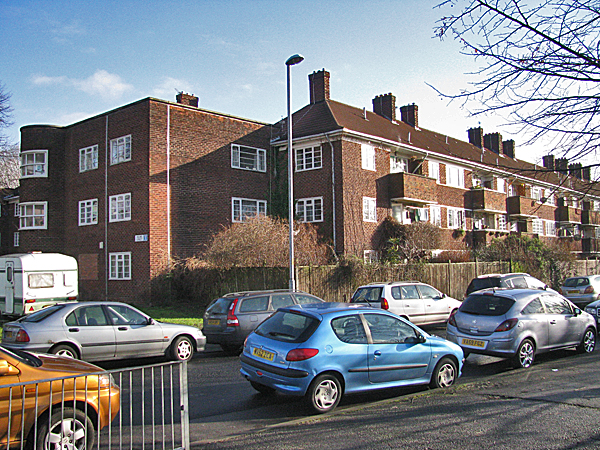 The Bentley House Estate
in Hulme comprises 6 blocks of red-brick, art deco,
flats bounded by Hulme Street, Princess Road, Clarendon
Street and Jackson Crescent. You can see the
parallel rows of low-rise flats in the top right-hand
corner of the image below. The image was taken
prior to 1991 because you can also see the Hulme
Crescents at the bottom of the image and they were
demolished in 1991.
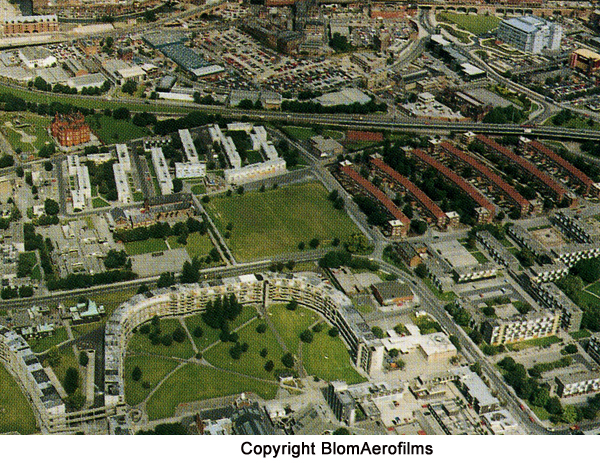 The image above is
shown with the generous permission of BlomAerofilms
The estate is often
referred to as "The Redbiricks". The estate's web
site describes the flats from the view of a resident, "Bentley
House estate consists of three parallel streets three
storey high walk-up flats. They were purpose built in
the late 1940s in an art deco style, at a time when
all flats still had open fires, shared communal
laundrys in the basement (designed as bomb shelters we
believe). Our bathrooms are tiny, designed at a time
when even having an indoor bathroom was rare, and our
kitchens were not designed to accommodate any mod
cons, but we are very lucky in many other ways. All
flats either have a decent sized balcony, or a garden,
and we also have an awful lot of communal green
space."
Rockdove Avenue, Hunmanby Avenue and Humberstone Avenue split the estate into 4 sections and, unusually for flats of that era, there are gardens behind and between the blocks. 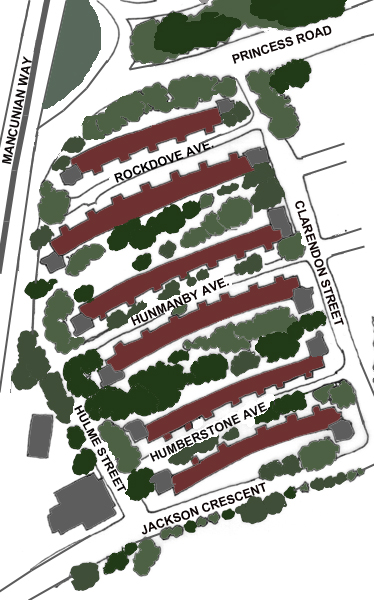 Prior to the 1940s,
Hulme like many of the suburbs that sat along the
fringes of the inner city, was dominated by streets of
Victorian terraced housing. The redevelopment
after WWII saw the terraces swept away and redbrick
flats of various shapes and sized built to replace
them. Many of them went in the 1970s when the
concrete era resulted in the cities in the sky approach
to rehousing, a strategy that proved disasterous in many
places. Hulme had one of the largest deck-access
developments in Europe in the shape of the Hulme
Crescents. These ill-fated disasters went up in
1971 and came down 20 years later. However, the
Bentley House Estate which pre-dated the Crescents by 30
years, is still going strong in 2011.
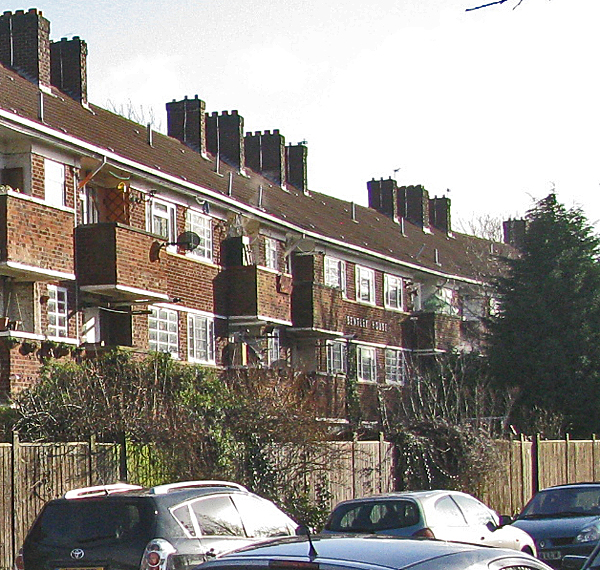 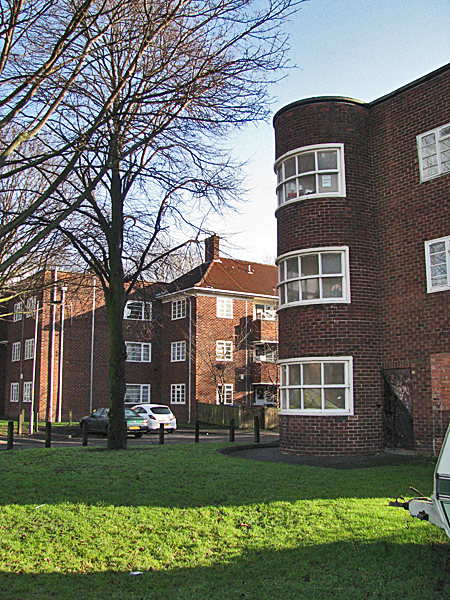 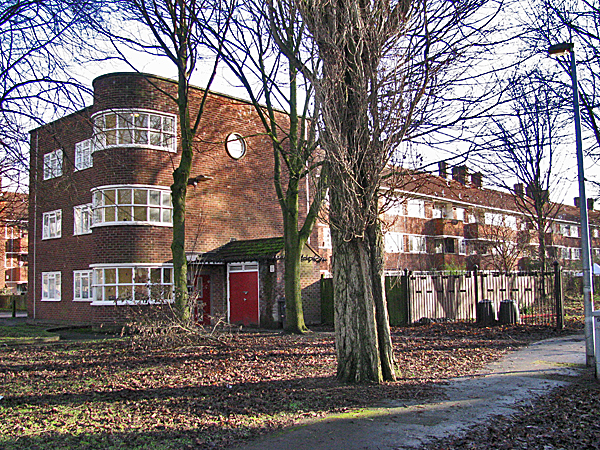 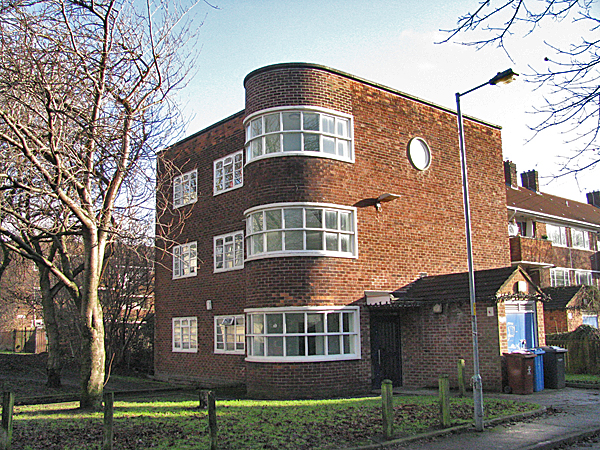 Close Window  |